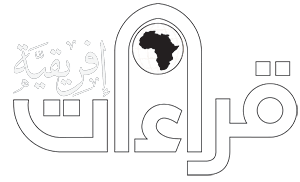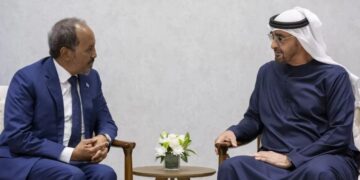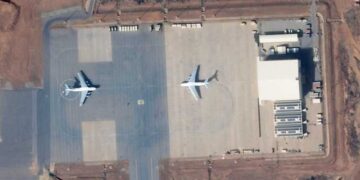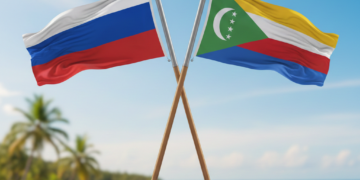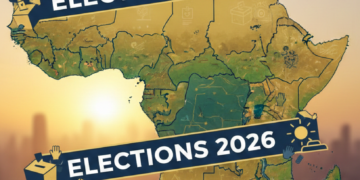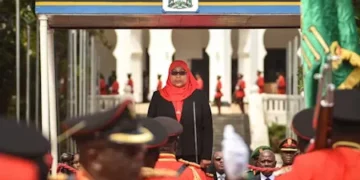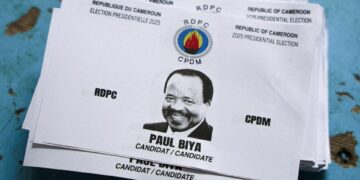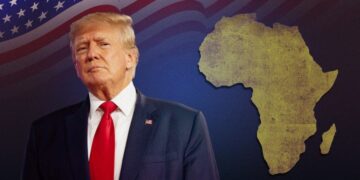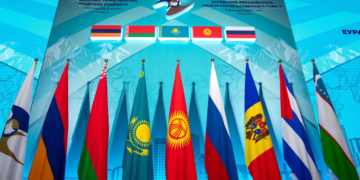Abstract: Islam achieve a major civilizational mutation in sub-Saharan African societies, or what Islamic sources used to call it “Bilad Al-Sudan”. This mutation included all religious, social, political and economic aspects. From this point of view comes the importance of this paper on the economic systems in the African kingdoms during the Islamic era; It is well known that those kingdoms experienced a clear economic prosperity after the spread of Islam in them, and this is an obvious issue, as Islam spread in sub-Saharan Africa through peaceful means, and commercial activity and the role of merchants was one of the most important of these ways through which Islam spread, and we do not exaggerate if we say that the spread of Islam in African kingdoms was the fruit of trans-Saharan trade. It was natural for those kingdoms to be affected by Islam and its systems in all aspects of their life and civilization, and their rulers began to seek to advance their economies according to the controls set by Islam. According to the foregoing; This study seeks to identify the nature of the economic systems in one of the Islamic kingdoms in sub-Saharan Africa, the impact of Islam on those systems, and the extent of commitment to the regulations set by Islam for economic systems and transactions. The model for this study is the Islamic Kingdom of Songhay, one of the kingdoms of Western Sudan; It is the last kingdom that had political influence in that country, and its era is a witness to the flourishing of Islamic civilization in those countries, and this is an important issue to measure the impact that Islam had on that society, especially at the level of economic systems. The Kingdom of Songhay, especially during the reign of its rulers from the Al-asaki dynasty, enjoyed good economic management that contributed to the development of the Kingdom to keep pace with the requirements of that era, and the Kingdom of Songhay benefited from the Islamic financial legislation that the Asaki worked to follow after consulting a number of prominent Muslim scholars in the Mashriq of the Islamic world such as Imam Jalal al-Din al-Suyuti and his Maghrib, such as Sheikh Muhammad ibn Abd al-Karim al-Mughili al-Tlemsani. Al-Asaki also benefited from some of the previous economic systems of the Sudanese kingdoms, especially the Kingdom of Mali, as well as relying on some local customs and traditions in organizing the economic affairs of the Kingdom. In order to discuss the subject of economic systems in the Kingdom of Songhay, this calls for talking about the financial policy in that kingdom, and the extent of its commitment to Islamic Sharia regulations, and economic management, including the financial institutions and their employees, and finally talking about the efforts of the Songhay kings to monitor their financial system, and this is a very important issue. The importance of identifying some of the errors and deficiencies that weakened the economic system in this kingdom.
الملخص: أحدث الإسلام نقلة حضارية كبرى في المجتمعات الأفريقية جنوب الصحراء الكبرى أو ما اصطلحت المصادر الإسلامية على تسميتها "ببلاد السودان". وقد شملت تلك النقلة كافة الجوانب العقائدية، والاجتماعية والسياسية والاقتصادية؛ ومن هذا المنطلق تأتي أهمية هذه الورقة حول النظم الاقتصادية في الممالك الأفريقية خلال العصر الإسلامي؛ فمن المعلوم أن تلك الممالك عرفت ازدهارًا اقتصاديًا واضحًا بعد انتشار الإسلام بها، وتلك مسألة بدهية، فالإسلام انتشر في أفريقيا جنوب الصحراء عبر الطرق السلمية، وكان النشاط التجاري ودور التجار أحد أهم هذه الطرق التي انتشر بواسطتها الإسلام، ولا نبالغ إذا قلنا أن انتشار الإسلام في الممالك الأفريقية كان ثمرة النشاط التجاري عبر الصحراء. وكان من الطبيعي أن تتأثر تلك الممالك بالإسلام ونظمه في كل جوانب حياتها وحضارتها، وأخذ حكامها يسعون للنهوض باقتصاداتها في ضوء الضوابط التي حددها الإسلام. في ضوء ما تقدم؛ تسعى هذه الدراسة للتعرف على طبيعة النظم الاقتصادية في إحدى الممالك الإسلامية بأفريقيا جنوب الصحراء، وأثر الإسلام في تلك النظم، ومدى الالتزام بالضوابط التي حددها الإسلام للنظم والمعاملات الاقتصادية. ونموذج هذه الدراسة هو مملكة صنغي الإسلامية إحدى ممالك بلاد السودان الغربي؛ فهي آخر مملكة كان لها نفوذها السياسي بتلك البلاد، ويعد عصرها شاهدًا على ازدهار الحضارة الإسلامية هناك، وتلك مسألة مهمة لقياس الأثر الذي أحدثه الإسلام في ذلك المجتمع، وبشكلٍ خاص على صعيد النظم الاقتصادية. تمتعت مملكة صنغي وخاصة في عهد حكامها من أسرة الأساكى بإدارة اقتصادية جيدة أسهمت في تطوير المملكة لمواكبة متطلبات ذلك العصر، وقد استفادت مملكة صنغي من التشريعات المالية الإسلامية التي عمل الأساكى على اتباعها بعد استشارتهم لعدد من العلماء المسلمين البارزين في مشرق العالم الإسلامي مثل الإمام جلال الدين السيوطي، ومغربه، مثل الفقيه محمد بن عبد الكريم المغيلي التلمساني. كما استفاد الأساكي أيضًا من بعض النظم الاقتصادية السابقة للممالك السودانية وخاصة مملكة مالي، فضلاً عن الاعتماد على بعض الأعراف والتقاليد المحلية في تنظيم الشئون الاقتصادية للمملكة. ولمناقشة موضوع النظم الاقتصادية في مملكة صنغي، يستدعي ذلك الحديث عن السياسة المالية في تلك المملكة، ومدى التزامها بالضوابط الشرعية الإسلامية، والإدارة الاقتصادية بما اشتملت عليه من المؤسسات المالية والعاملين فيها، وأخيرًا الحديث عن جهود ملوك صنغي في رقابة نظامهم المالي، وتلك مسألة في غاية الأهمية للوقوف على بعض الأخطاء وأوجه القصور التي شابت النظام الاقتصادي في مملكة صنغي.
